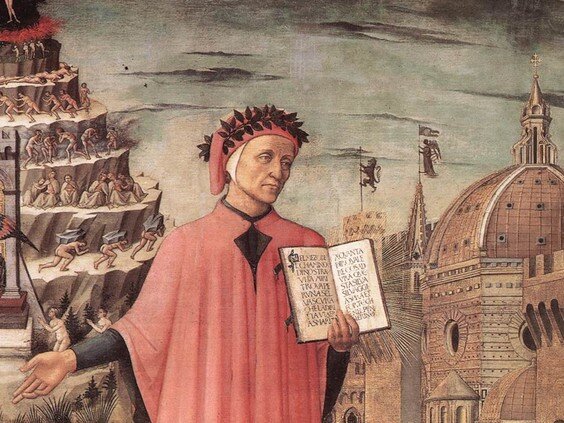700 years after his death, Dante is as relevant as ever
National Post, 14 September 2021
That love — divine love — is at the heart of reality, not the emptiness of random chance, is the good news — or 'gospel' — that Dante proclaimed seven centuries ago.
There is no figure in the history of literature quite like Dante Alighieri, who died on Sept. 14, 1321 — 700 years ago today.
For English-speakers, there can be no doubt as to the place of Shakespeare. He is without doubt the greatest poet/playwright in the language. Post readers may be interested to know that some years back our founder, Conrad Black, and I discussed who might be the great prose writer in the English language.
We both opted for 19th-century figures. I proposed St. John Henry Newman; Black preferred Abraham Lincoln. Both are most worthy candidates for the title. Perhaps what one might expect from a theologian and a historian, respectively.
Shakespeare’s fourth centenary fell five years ago, but 2016 was not a “year of Shakespeare” quite like this has been a “year of Dante,” as it has been officially declared by Italy.
What is more striking is that Dante has an enormous following in a wide range of countries and languages, which is all the more impressive given that his native Italian is not a world language. He is often referred to as the “father” of the Italian language; his work lifted it to such a sublime level that no further developments were needed. Dante’s Italian is more familiar to Italians today than English from the early 14th century would be to us.
Uniquely, perhaps, in literature, Dante is known really for only one work, the “Divina Commedia” (“Divine Comedy”). The epic poem chronicles — in 100 “cantos,” or chapters, split into three parts — Dante’s journey through hell (Inferno), purgatory (Purgatorio) and heaven (Paradiso).
There are plenty of Shakespeare courses in literature departments; one can take various classes that focus on his historical plays, his tragedies, his comedies and his poetry. There are only a few Dante courses, but there are plenty of courses on the “Divine Comedy.” Without that masterpiece, it is likely that Dante would hardly be remembered at all. It is not a body of work that is celebrated, but rather a masterpiece so inspired that it has created its own discipline of study.
There are three reasons for that. The first is that Dante chose the most important subject for his poem: Where is man going? What awaits him?
Dante is considered by some to be the theology of St. Thomas Aquinas set in verse. He makes that theology accessible through image and rhyme, but does not dumb it down. Dante gives his readers the best that has been thought on the most important subject; it turns out that is a formula that finds an audience even seven centuries later.
Continue reading at the National Post.
